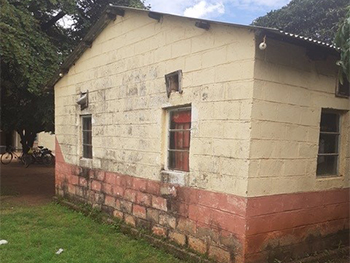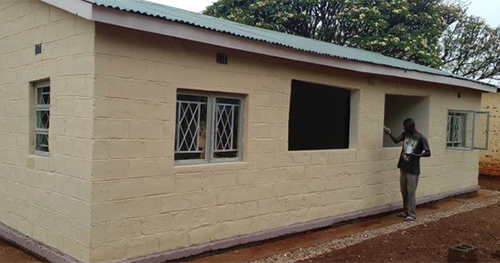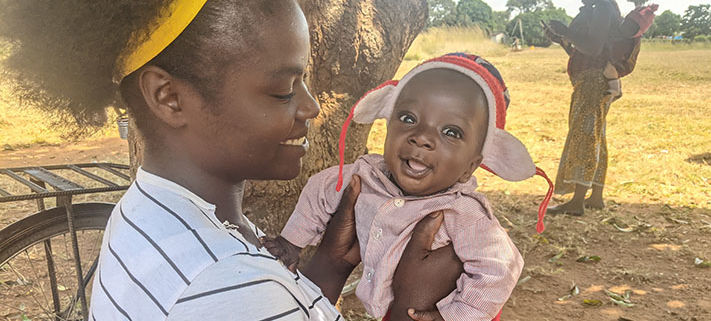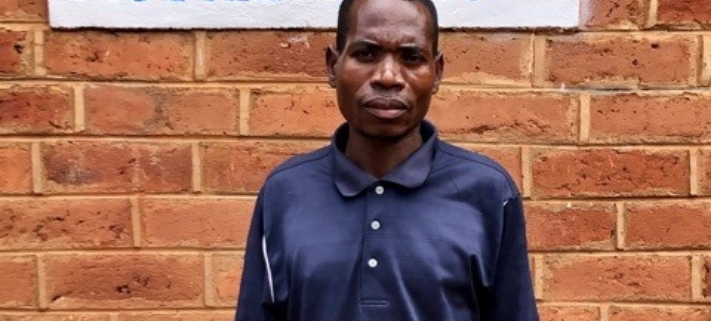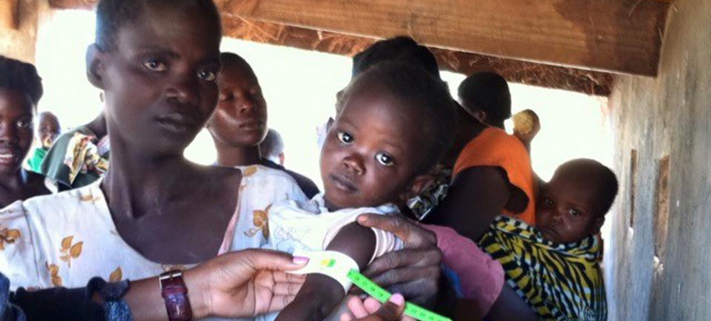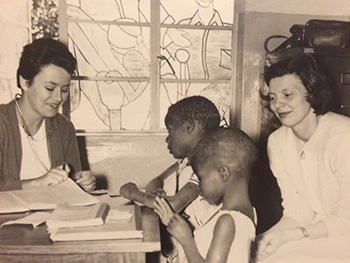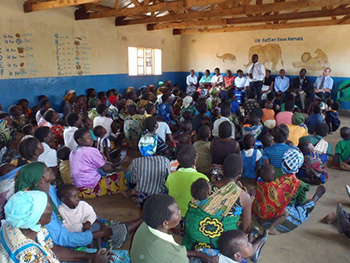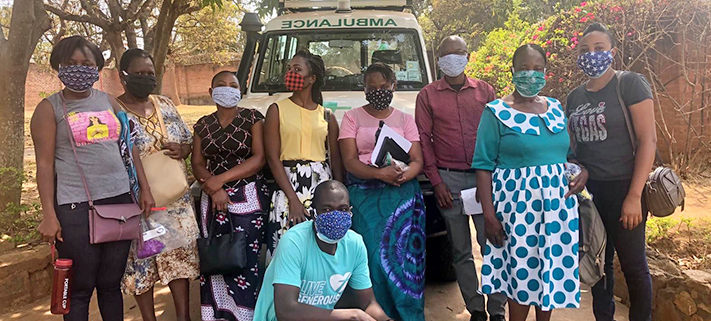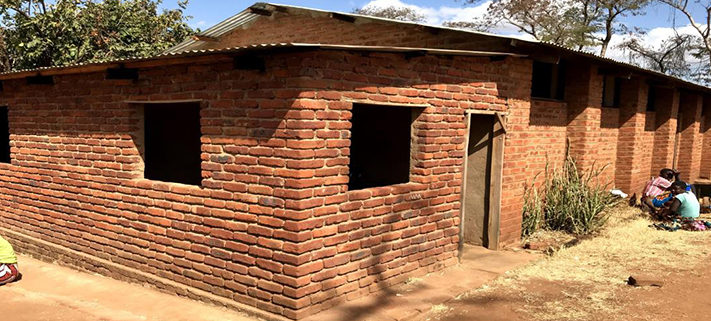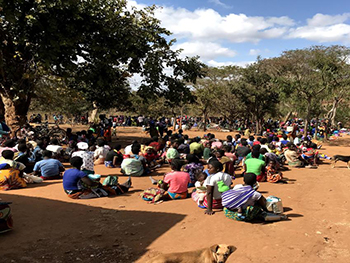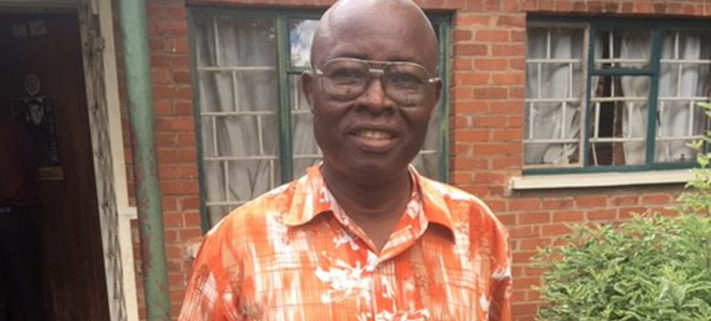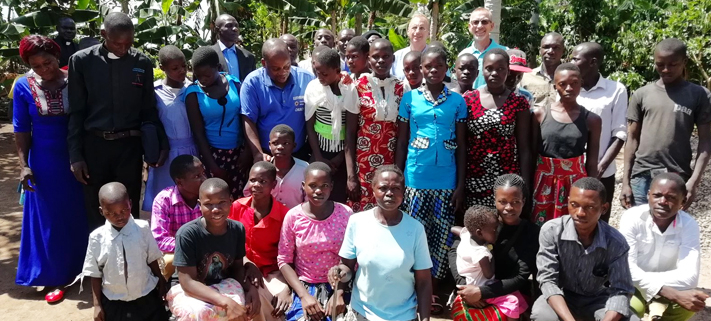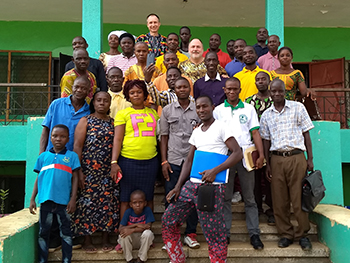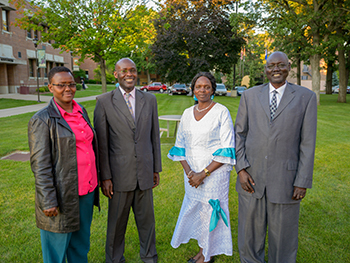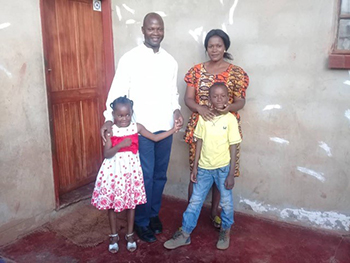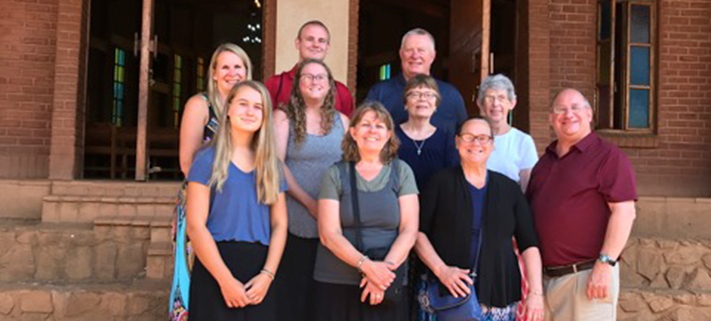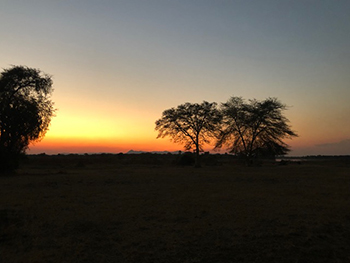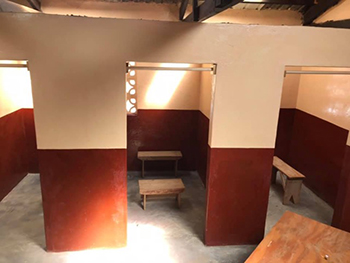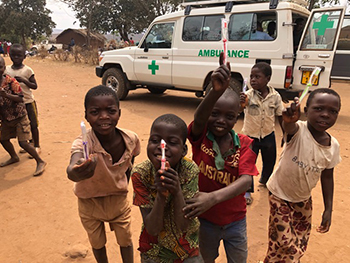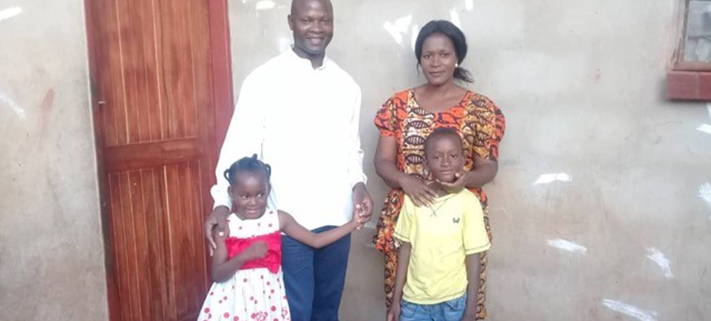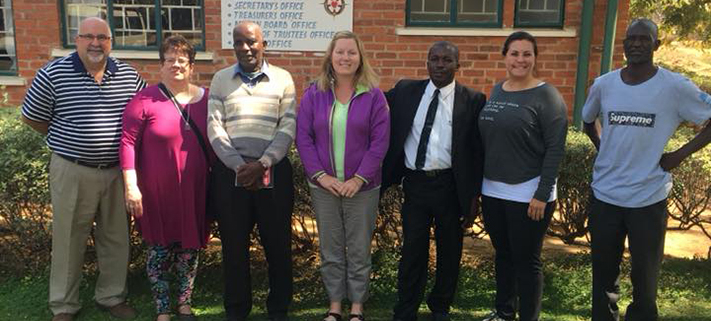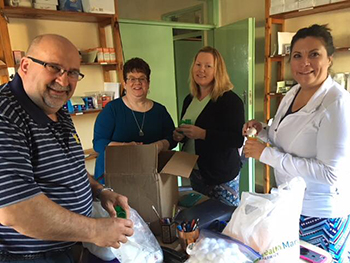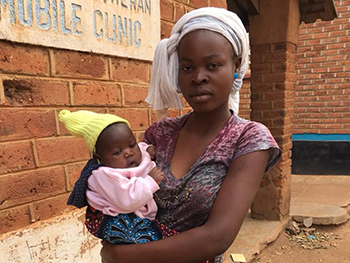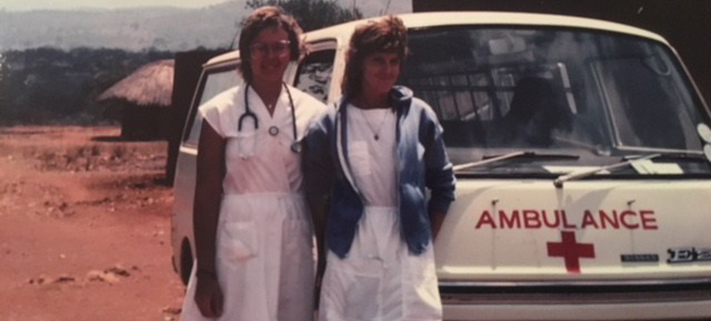Beth and Gary Evans serve the Central Africa Medical Mission (CAMM) in Malawi in the capacity of Head Nurse and Manager of Operations. This is not the first time they have lived overseas. In fact, they first met 33 years ago in Malawi, when Beth was serving as one of CAMM’s mobile clinic nurses and Gary was working as a civil engineer building water supplies with the Voluntary Service Overseas (the UK’s version of the Peace Corps). For both of them, the second time around is sweeter.
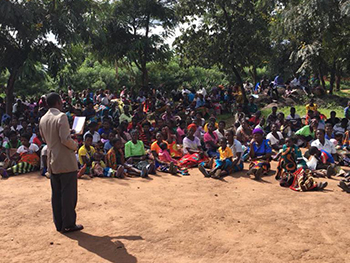
Pastor Beza doing devotion before Clinic at Mwalaulomwe
WELS missionaries first arrived in Central Africa in 1953 and began working in Zambia. In 1961, WELS became involved with humanitarian medical relief work in Zambia by opening “The Mwembezhi Lutheran Dispensary,” a stationary medical clinic that is still operating today as the Lutheran Rural Health Center.
In 1970, WELS began serving the medical needs of the people of Malawi by establishing the mobile health clinic in five different locations near the town of Salima, where the nurses lived. Every day of the week the nurses traveled to a different site to offer medical care to people in remote areas. The model is still being used in Malawi today but is based out of Lilongwe, the capital city.
Nurse Beth Evans (nee Ebert) served CAMM in Malawi from 1983-1985 along with fellow nurse Corrine Sievers, soon after the nurses were moved to Lilongwe. Each week the two nurses and their Malawian staff members traveled on a one lane paved road to Salima, which is about 60 miles from the capital of Lilongwe. One to two nights every week the nurses lodged at a small house that had been previously used by a Lutheran evangelist, in order to conduct clinics in the Salima area on two to three different days. One of these clinics, in the village of Katumba, continued once a month even after new clinics were established in the Lilongwe area.
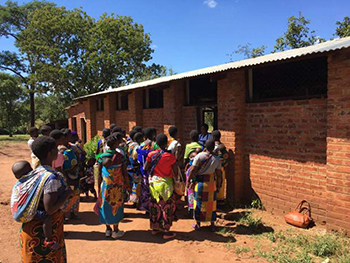
Mothers and children line up early outside the Suzi clinic
By 1984 CAMM received the government’s permission to open clinic sites closer to Lilongwe in the villages of Suzi and Msambo. Initially, the nurses worked out of little storefronts and a grass-thatched shelter. Nola Christianson and Beth were the diagnosticians and would see each sick patient. In addition, there were 3-4 Malawian nurse-midwives, a nutrition worker and a driver who also registered patients. The nurses frequently saw diseases like measles because most children hadn’t been immunized. Malaria was common and many children were undernourished. Then as now, the goal of the mobile clinic was primarily preventative healthcare, including checkups of children under the age of five, immunizations, health teaching and prenatal care for pregnant women, but anyone who was sick received care. The clinic staff encourage all women to deliver in a local health center or hospital, but Beth remembers that a baby was born at a clinic site once. Eventually CAMM turned over all of the Salima area clinic sites to other missions or government clinics. Permanent buildings were constructed at Suzi and Msambo which are used for church services on Sundays. Years of reaching out to Malawians not only with medicine but also with the Word of God in clinic devotions and pastoral outreach resulted in LCCA congregations being established at these villages.
Beth and Gary met through mutual friends, when “social networking” was carried out face to face. It seemed more than a coincidence that they kept running into each other at various events around Lilongwe, like music concerts and farewell parties. Their first official date was a dance held at the “swanky” Capital hotel. Gary used to take Beth to the local tennis club on his motorcycle. Wild dogs used to chase them but no problem, they took turns swinging their tennis rackets at them to scare them off. Gary used to serenade Beth with a song from his parents’ era, “If you were the only girl in the world.” It must have seemed like they were the only two people in the world when they climbed Malawi’s remote Mount Mulanje, the highest peak in Central Africa. In fact, they were so alone (and so hot) that they free to jump into one of the mountain’s ice-cold streams with their clothes on. It was a match made in heaven.
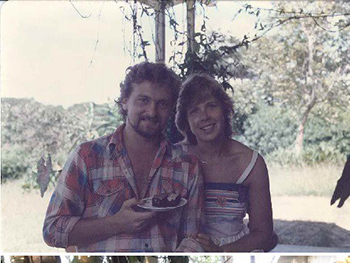
Gary and Beth in 1985
By February 1986, Gary and Beth were married and living in Milwaukee, Wisconsin. After that, their life in America moved on at a pretty rapid pace. Gary worked for a Civil Engineering company, and Beth started out in hospital nursing. They lived downtown near the campus of UWM and later bought a house in Whitefish Bay. They their first child, James, in 1989. Gary took a job for Waukesha County, where he stayed for 28 years and eventually became the County Engineer. Their daughter Abby arrived in 1992, and their twins, Liam and Olivia, were born in 1996. Beth mainly worked in pediatrics and worked for Children’s Hospital. Eventually the family moved to Mequon, Wisconsin.
Beth and Gary are members of St. Marcus Lutheran Church, where they have both used their unique gifts to serve the Lord. Gary was confirmed in May 1986 and by December was elected to the Church Council. He served in various posts including School Board, Treasurer, and President, but spent the majority of his time as Facilities Chairman, mostly as Project Director on various school expansion projects. Beth sang in the St. Marcus Gospel Choir, was a Parish Nurse and eventually became St. Marcus school’s first School Nurse.
But Beth and Gary never forgot about Malawi or medical mission. Beth served as the nurse coordinator on the CAMM committee for five years. In 1996 Gary and Beth traveled back to Malawi for a vacation, visiting the CAMM expat staff at that time. Gary and Beth had talked about working again somewhere in Africa after they retired, but in the process of recruiting a nurse for CAMM in Malawi it was difficult to find someone willing to commit for three years. When they learned that a married couple could apply to serve the two positions of nurse and administrator, Gary was eager to go. Beth on the other hand had reservations about leaving her two jobs and her two college-age and young adult kids behind. But after much prayer, things fell into place. Beth found a friend who was willing to serve St. Marcus as the school nurse, and Gary was able to take an early retirement. With their children’s support they decided that the time was right to return to Malawi.
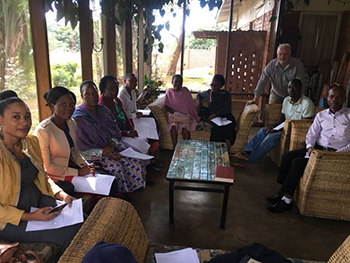
Weekly staff meetings are held at the CAMM house
As you can imagine, there’s a lot involved with uprooting yourself and moving to a foreign country. Beth and Gary put their house up for rent and arranged for Beth’s brother to have power of attorney over their finances. Like others working in third world countries, Beth and Gary got a thorough medical checkup, had immunizations and were tested for HIV because they are working with patients in a place that has one of the world’s highest incidence rates of AIDS.
The work of CAMM has changed somewhat since Beth’s first tour of duty in the mid-1980’s. CAMM now hold clinics at four locations, all in the Lilongwe area: Msambo, Suzi, Thunga and Mwalaulomwe. Local church leaders still offer devotions for the patients before the start of each clinic. The clinic staff is much larger and there are now 21 people on the payroll. The clinic still focuses on prenatal mothers, children under the age of five and nutrition education. There is more HIV testing and counselling at the clinic sites. There is less severe malnutrition today than 30 years ago, but there is more hypertension and diabetes – perhaps the result of a more western (junk food) diet. Increased government requirements and the complexity of running the clinics has meant a change in the American staffing of the mission. Instead of two nursers, there is now one nurse in charge who oversees the medical work, and a clinic administrator to handle the business needs of the clinic.
Gary and Beth have agreed to serve in Malawi for three years, although they will head to the US in June for a quick visit to attend their son’s college graduation. They would like build on the past efforts of many who have continually improved the clinic work , and also to keep the medical mission as a sustainable operation into the future. Gary’s experience in civil engineering will come in handy, as some of the clinic buildings are over 30 years old and are in need of some TLC. Funds have been raised to complete renovations.
The Lutheran Mobile Clinic staff in Malawi and the Zambian team at the Lutheran Rural Health Center would not be able to do their work effectively without much help and support from their Christian brothers and sisters in the United States. The Central Africa Medical Mission is a non-budgeted mission of the WELS; no money is received from the regular synodical budget. The responsibility and support of the Central Africa Medical Mission has been given to the women’s groups of the WELS. Contributions are also received from Christian day schools and high schools, Sunday schools, some circuits of the LWMS and other friends of the medical mission. The Central Africa Medical Mission reaches the hearts of many WELS members and beyond.
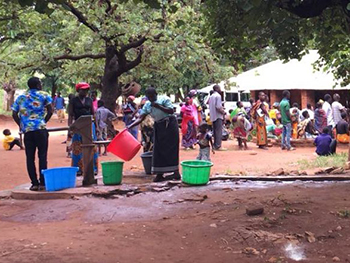
Msambo clinic
CAMM supplies and supports the American personnel as supervisory staff, erects and maintains clinic buildings, and purchases necessary medical supplies. The clinic work is aligned with other private and government run clinics in its approach to healthcare, and CAMM’s clinics are required to meet the regulations of the Ministry of Health in Malawi. Both the Malawian and United States governments provide some support in the form of certain medicines and test kits, but detailed statistical reports must be completed each month to show how these are used.
The Central Africa Medical Mission is administered stateside by the Central Africa Medical Mission Committee (CAMMC), with input from Medical Mission Councils in Malawi and Zambia. The CAMM Committee is an all-volunteer group, they provide the guidance, oversight and financial resources for the clinic to continue. The current Committee consists of a Chairman – Shelly Sievert; Contact Woman Coordinator – Cheryl Valus; Website controller – Mike Valus; Treasurer – Bea Punke; Outreach – Linda Liesener; Public Relations – Angela Sievert; Secretary – Kris Olson; Nurse Coordinator – Cindy Fietzer; Nurse Advisor – Kari Belter; Medical Advisor – Michael Brooks; and Pastoral Advisor – Kevin Schultz.
In the past, contact with CAMM was by mail so it could often take at least two weeks to get a response. These days the Evans remain in contact by cell phone and typically check in with Chairman Shelly Sievert every two weeks or so. More urgent issues can be handled by text messages, email or What’sApp.
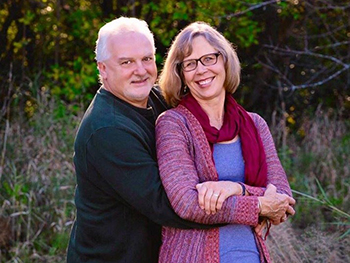
Beth and Gary Evans serve the Central Africa Medical Mission in Lilongwe, Malawi
Former nurses and administrators and current CAMM committee members give presentations to schools and church groups around the country about the medical mission. There is also a network of contact women to pass on information to congregations. If you are interested in serving CAMM in Malawi or Zambia, you can contact Chairman Shelly Sievert at [email protected] Applicants must be in good health and able to do physical work, be comfortable with other cultures and able to adapt to a warm climate. It is important for anyone considering this kind of position to pray, to consult with family and church friends, and to talk to those people who have done mission work in the developing world. Beth Evans writes: “This experience has caused me to learn and grow in my faith, and trust God more than I ever imagined.”
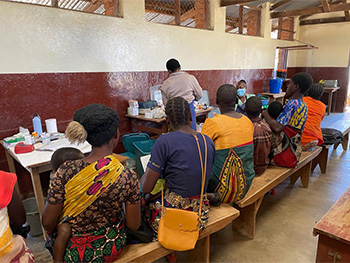
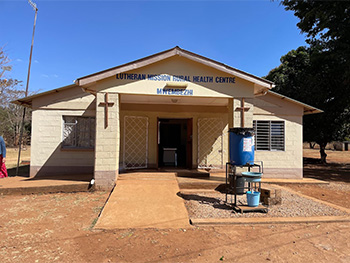

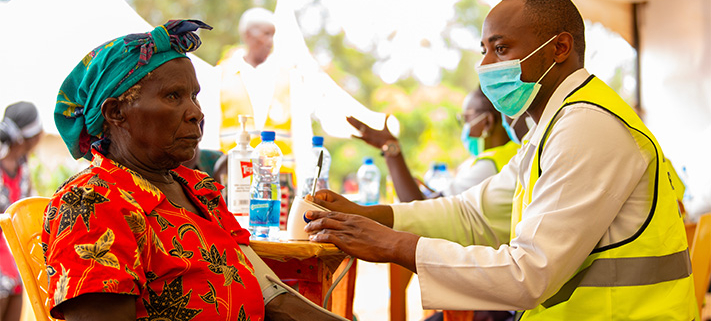
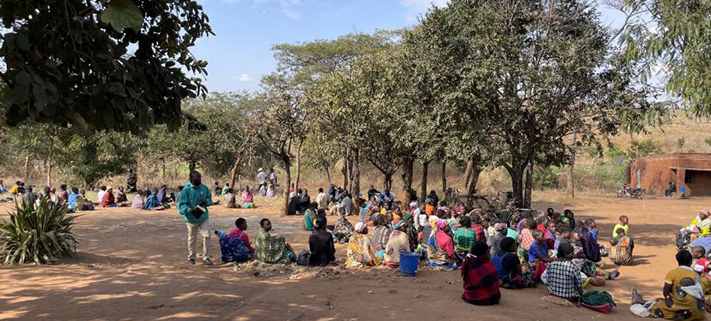
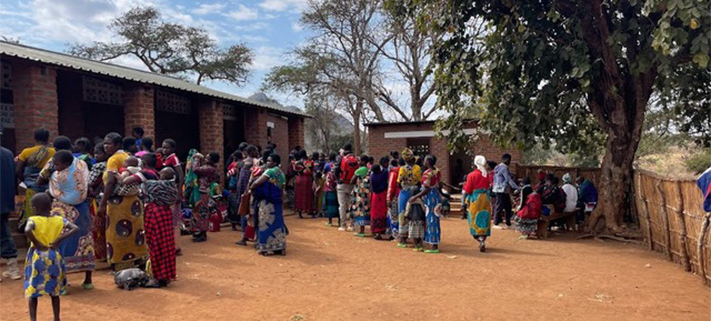
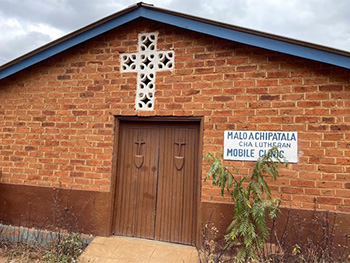
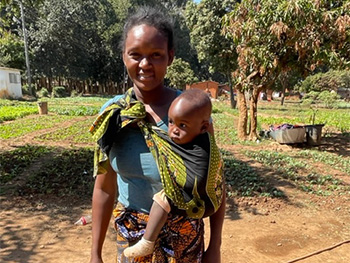
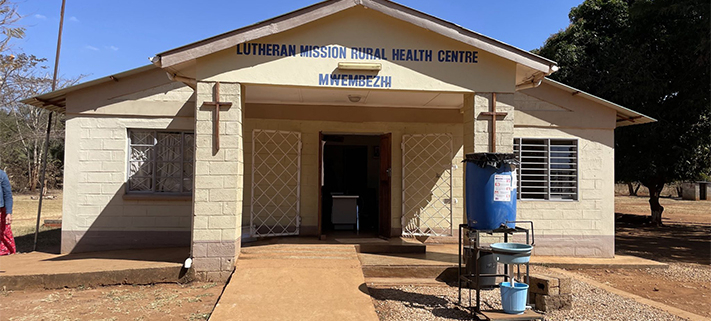
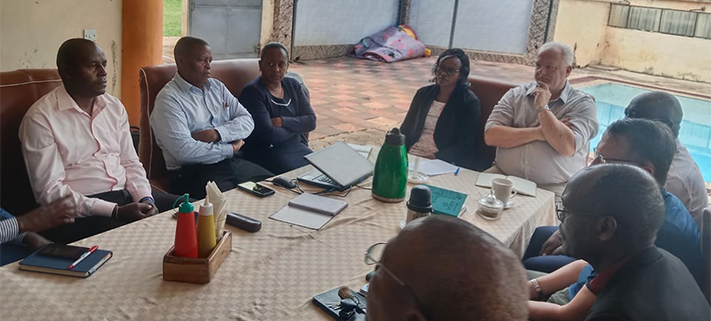
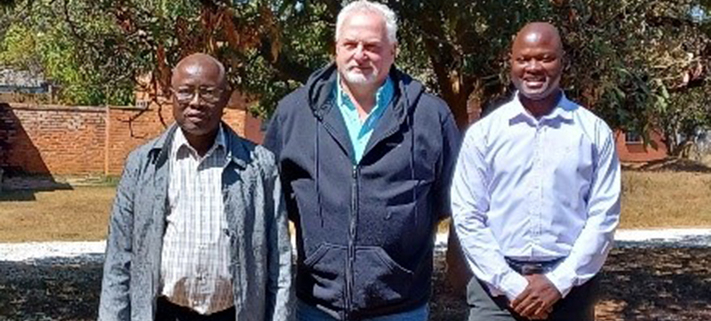
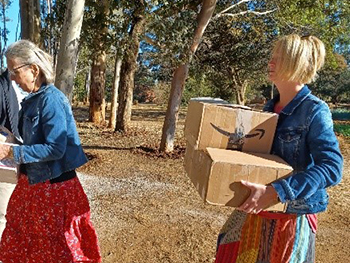
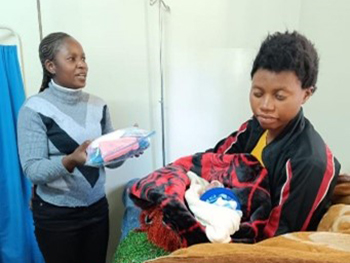
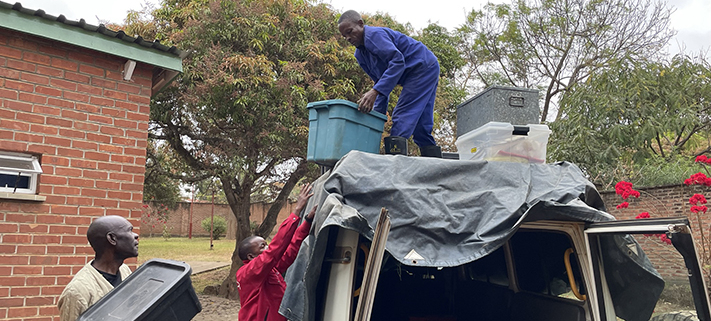
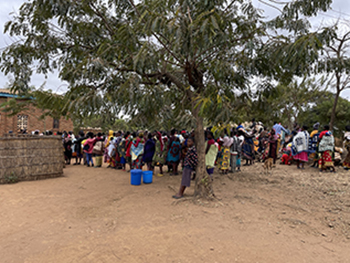
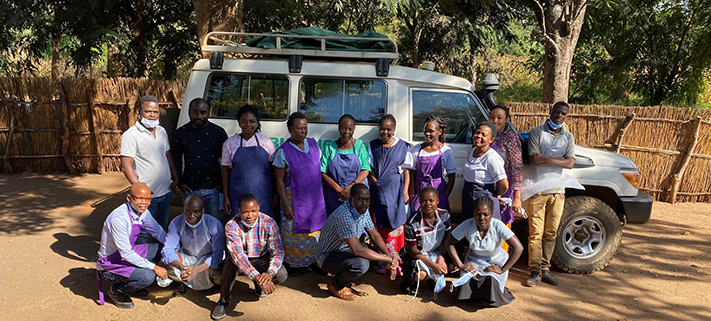
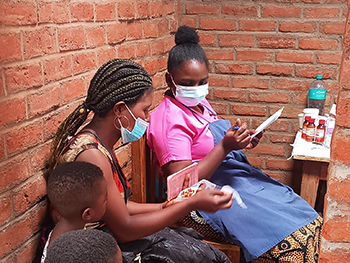
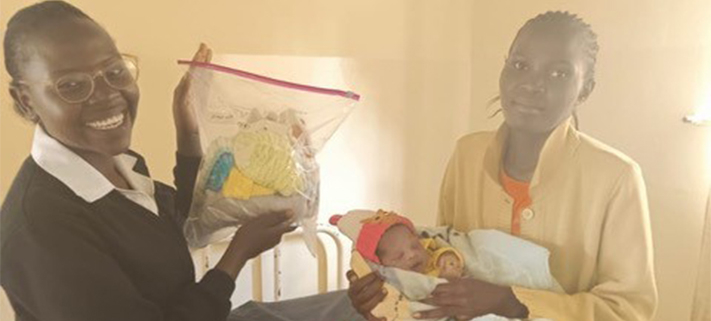
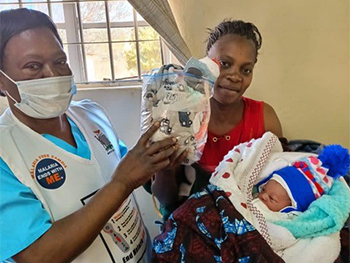 It is not uncommon to hear babies crying in the village of Mwembezhi, Zambia. In Psalm 127:3 it reads, “Children are a heritage from the Lord; offspring a reward from him.” The Central Africa Medical Mission (CAMM) has been helping protect the Lord’s gifts and their mothers for over 60 years. The Lutheran Rural Health Centre in Mwembezhi is located about 60 miles west of Lusaka, in Central Province of Zambia. The clinic provides Christ-centered healthcare services to people within its region. One of the primary functions of the clinic is pre and postnatal care: monitoring pregnant women throughout their pregnancies and then through labor and delivery. In 2021, 197 babies were born at the clinic. In fact, the Zambian government mandates that babies be born at health centers such as Mwembezhi, rather than at home.
It is not uncommon to hear babies crying in the village of Mwembezhi, Zambia. In Psalm 127:3 it reads, “Children are a heritage from the Lord; offspring a reward from him.” The Central Africa Medical Mission (CAMM) has been helping protect the Lord’s gifts and their mothers for over 60 years. The Lutheran Rural Health Centre in Mwembezhi is located about 60 miles west of Lusaka, in Central Province of Zambia. The clinic provides Christ-centered healthcare services to people within its region. One of the primary functions of the clinic is pre and postnatal care: monitoring pregnant women throughout their pregnancies and then through labor and delivery. In 2021, 197 babies were born at the clinic. In fact, the Zambian government mandates that babies be born at health centers such as Mwembezhi, rather than at home.